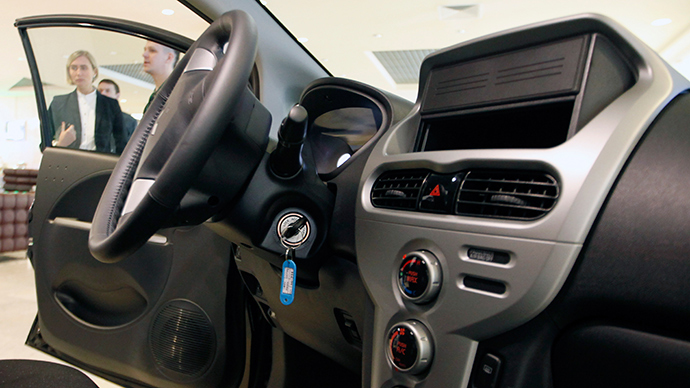Safety v. privacy: EU says new cars must be fitted with SOS black boxes

All new cars and vans throughout the EU must be fitted with an 'SOS' black box within three years, the European Parliament has ruled. The device will automatically contact emergency services in the event of an accident.
The device, called eCall, will dial the EU-wide emergency number 112 if an accident occurs. This will give authorities the exact location and time of the crash, as well as the number of passengers in the vehicle. It will also state the direction of travel and the position of the crash.
According to EU representatives, the device has been shown to cut emergency response times by half in rural areas, and up to 60 percent in towns and cities. For those injured in a car crash, this could mean the difference between life and death.
Road safety experts say the device – which will be mandatory from April 2018 – could cut road deaths by 10 percent a year. This is a significant number – 25,700 people died in road accidents in the EU last year.
But not everyone supports the technology, with many criticizing the ‘Big Brother’ implicationsof its introduction. According to privacy advocates, motorists’ locations, habits, and driving behavior could be shared with companies, or even hacked.
“There is a clear risk that once this device is installed, drivers will lose total control over who has access to their data and how they will use it...forcing drivers to have a device installed in their car, which is capable of recording and transmitting exactly where and when they are driving, is totally unacceptable,” Emma Carr, director of Big Brother Watch, told the Telegraph.
However, the European Commission says eCall will not track vehicles under normal circumstances and authorities will not be able to share data with third parties without the car owner’s permission.
Despite opposition from privacy campaigners, the Tuesday vote was welcomed by the auto industry.
“This decision brings Europe one step closer to making operational a system which we have been advocating since 2004,” said Erik Jonnaert, secretary general of the European Automobile Manufacturers’ Association, as quoted by This is Money.
Britain's Automobile Association (AA) also voiced its approval.
The group's head road policy, Paul Watters, said it will “save lives across Europe,” while adding that it will be most beneficial in less “congested” countries where accidents will often go unwitnessed.
The new device could also be used by those witnessing an accident that didn't involve their vehicle. They would simple push a button inside their own car, quickly contacting emergency services.
The technology is already standard in some BMW, Volvo, and Citroen models. Three years after the launch of eCall, the EU Commission will determine whether the device should also be fitted into trucks, buses, and coaches.












